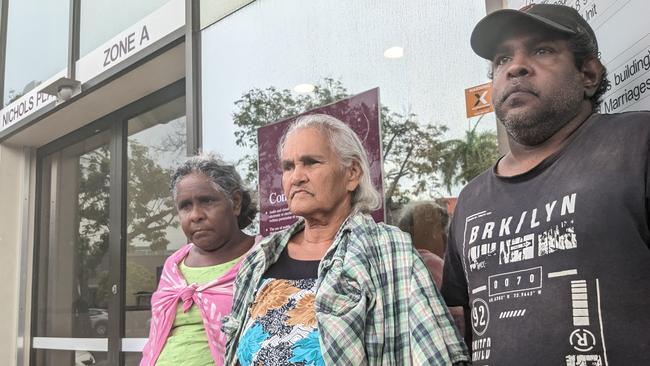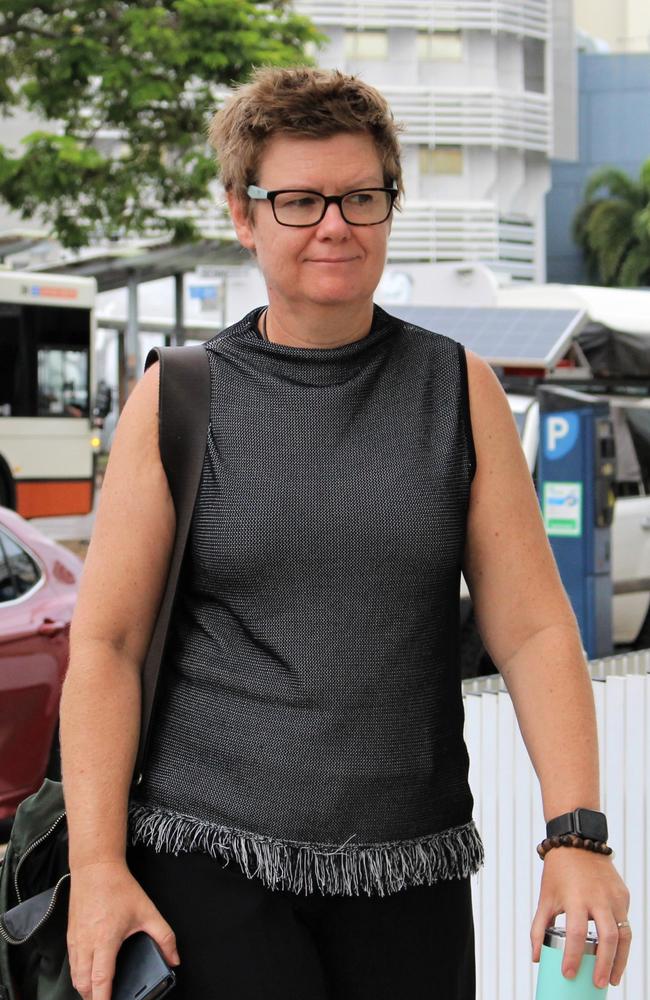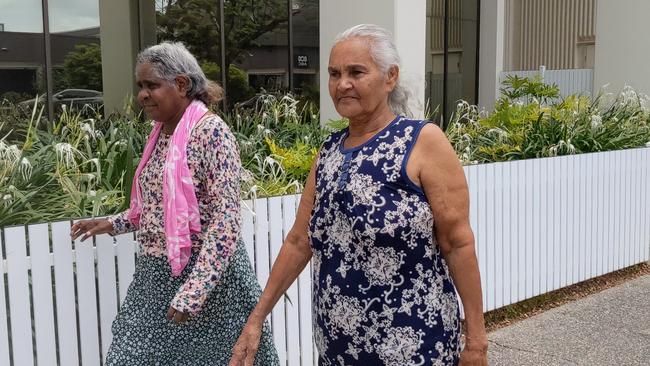Bernard Hector’s family speak out as coronial inquest hears from health boss
‘We don’t want that to happen again’: A Katherine aunt has described her pain after listening to the failures to detect her nephew’s self harm red flags
News
Don't miss out on the headlines from News. Followed categories will be added to My News.
Fellow prisoners were the only ones to notice the mental health red flags of a man who claimed he sold his soul to the devil and spent his days consulting a homemade ouija board, a coroner has heard.
Despite warning his lawyer he planned to kill himself, 31-year-old Bernard Hector was taken off ‘at risk’ self harm watch within 24 hours of his arrival at Darwin’s Holtze prison.
Six weeks later the Aboriginal man’s body was found in an unsupervised cell, hours after he took his own life.
After three days of watching NT government departments and fellow prisoners describe her nephew’s final six weeks, Amy Johnson said all she felt was “hurt”.
“It was tough, we’re upset, to hear what was happening,” the Katherine woman said.
“We don’t want that to happen again, the same thing.
“When they go into prison, they’ve got to get treatment.

The NT Health department told coroner Elisabeth Armitage on Thursday despite patient records highlighting Mr Hector’s history of suicidal thoughts and fellow prisoners noticing bizarre behaviour, the 31-year-old was not considered a self harm risk.
“Time and time again people will commit suicide and friends and family will be completely shocked,” population and primary health care specialist Ruth Derkenne said.
“This is a slightly different case, because some of his friends … did detect potentially a change in his behaviour. They did have concerns.”
Dr Derkenne said these alarming signs were not reported to staff and recommended reforms to encourage prisoners to come forward with their concerns.
But the family’s barrister John Lawrence said the responsibility should be on trained staff to pick up red flags.
Within 24 hours of arriving at Holtze, Mr Hector was not considered ‘at risk’ of self harm, with a registered nurse describing him as “quiet” and “friendly”.

Mr Lawrence said this was despite his medical record detailing a history of suicidal ideation, “dream states”, “talking to walls” and having “very dark things” in his past.
Dr Derkenne maintained that — even with hindsight — that decision was correct at the time.
“The assessment by the people who are highly trained was that they did not perceive that he needed ongoing assessment by a forensic mental health team,” she said.
“And we still say that.”
But Dr Derkenne acknowledged that the ‘at risk’ system should become more dynamic and the safety plan should connect prisoners to support.
She said by encouraging prisoners to report on their peers, these red flags could be picked up earlier for a “more reliable system”.

But both NT health and Corrections conceded it was well-known prisoners often tried to avoid the ‘at risk’ classification.
“People who are being assessed for suicide frequently deny symptoms so they can not be placed at risk,” Dr Derkenne said.
She said the “comprehensive assessments” balanced the self harm risk with the “ramifications” of the restrictive ward, which included constant surveillance and isolated cells.
“To keep someone at risk, you want to be sure they need to be there,” Dr Derkenne said.
She said there were “resource pressures” on the prison health system, with Covid threats, staffing gaps and lockdowns hurting service delivery leading to Mr Hector missing a series of medical appointments.
“There’s still a backlog of missed appointments and health checks … but we’re moving through them faster than we did during Covid,” Dr Derkenne said.
Ms Armitage adjourned the hearing to February 7, so that the final witnesses can give evidence.
More Coverage
Originally published as Bernard Hector’s family speak out as coronial inquest hears from health boss





